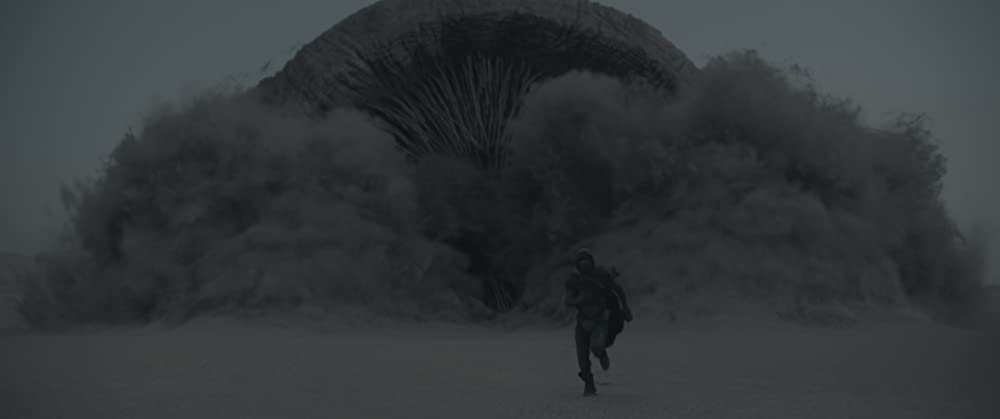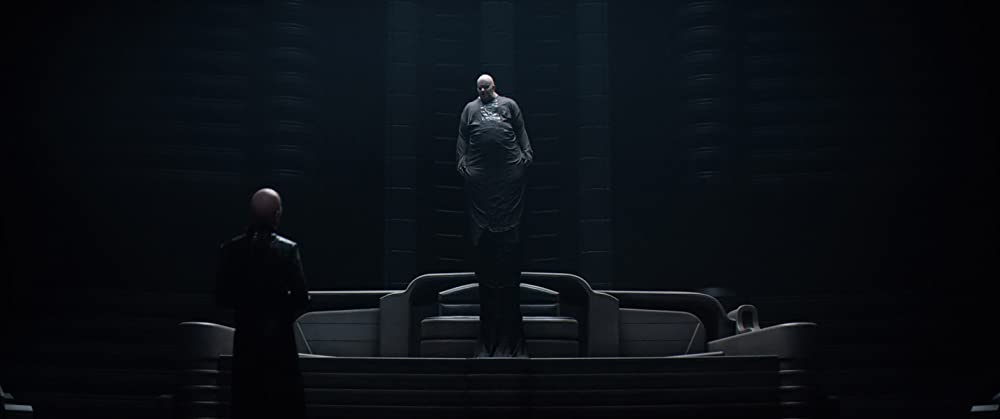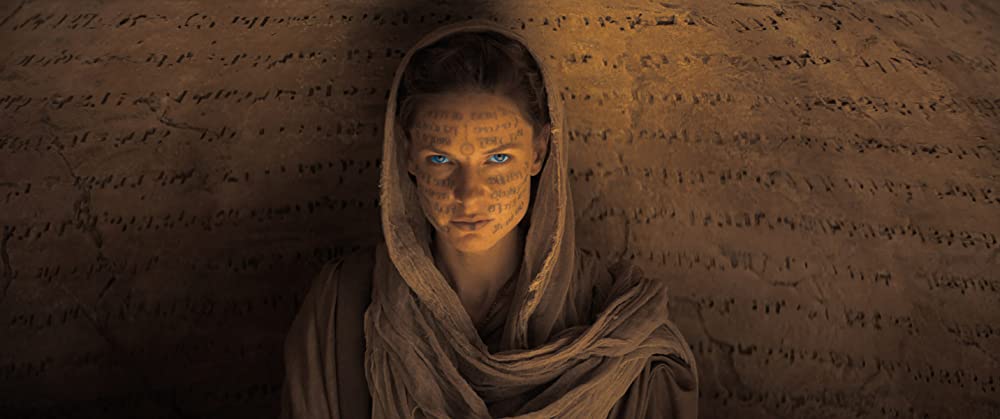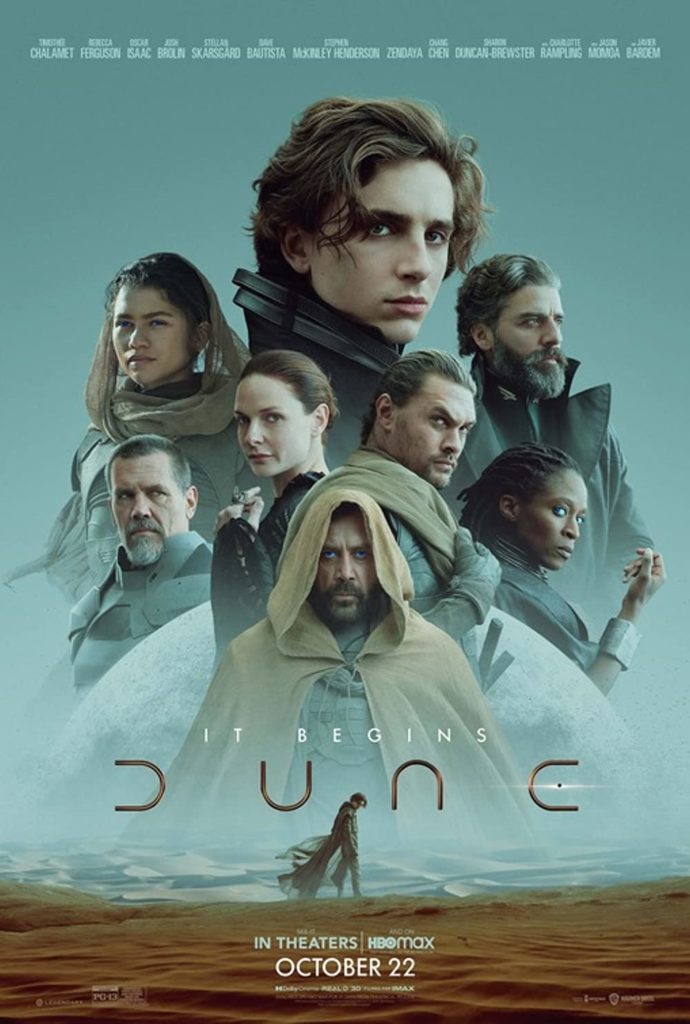Denis Villeneuve did the impossible and brought the first part of a beloved story to the big screen. Many have said that Frank Herbert’s Dune is one of those stories that would be nearly unattainable to have justice done and faithfully adapt it for a mainstream audience. A couple has tried and, more or less, failed. The novel is well-known for how rich and complex the source material can be at times. It’s layered with themes that are tough to tackle and interpret. Despite the naysayers, Denis Villeneuve has provided us with a version that will put other great science-fiction space operas to the test. It’s massive in scale, rich in world-building, and a thrill ride all the way to the end.
Dune is about House Atreides, a family who are assigned to rule over Arrakis, a desert planet also known as Dune, a harsh environment where the sun makes it nearly impossible to survive without a stillsuit to recycle the body’s moisture for survival, all while humungous sandworms lurk under the sands waiting to strike at any vibration they feel. Dune is also home to melange, which is also known as “spice”, a drug-like element that can increase the lifespan of humans and has been subjected to war on the planet as others colonize Dune in hopes of harvesting spice. Things take a turn for the worst when the Atreides family realize they were set up and get stranded on the planet where they have to fight to survive and embrace the Fremen, a culture that’s native to Dune. Paul Atreides, the son of Duke Leto, homes in on special abilities that were gifted to him on behalf of his mother, Lady Jessica, who is also part of the Bene Gesserit, a powerful sisterhood that holds special powers to influence politics and the way of life. He has visions of the future and starts to uncover a plot that’s bigger than the planet of Dune itself and embraces who he was destined to be.

To say the scope of this giant isn’t worth noting would be undercutting everything the movie is about. It’s all about world-building and seeing how small we are in a universe that’s more massive than we can even comprehend. It’s about expanding our imagination, our understanding, and our perceptions of reality and different cultures. How Denis Villeneuve and Greig Fraser captured the essences of different cultures, the scale of ships compared to mankind, and the vastness of an endless desert isn’t anything but short of incredible. And on top of that, the way they decided to showcase the production and costume design is bound to get recognition of some kind when the award season comes.
For as far-fetched as the ideas in the novel are, Villeneuve found a way to simplify them and make them as cohesive as possible. You can feel how careful he was with the source material and translating it to the big screen. Each scene is cradled with love and respect. The performances only enhance world-building. Timothée Chalamet, Rebecca Ferguson, Jason Momoa, Oscar Isaac, Stellan Skarsgård, and Zendaya all give some performances where I left thinking they were born for these exact roles. Two performances I still think about are from David Dastmalchian, who plays Piter De Vries, and Charlotte Rampling, who plays Gaius Helen Mohaim. When they are on screen there is a sense that at any given moment, they could snap, and we’d see an even darker side. They were just mesmerizing overall.
Some may have issues with its pacing – it is, after all, only part one of the first novel. With that said, I didn’t find myself too bothered by it. In fact, through its two hours and thirty minutes, I thought it moved rather quickly and did its job. I was surprised by how much time flew by on my initial screening. But because it is part one of something greater, the ending leaves us hanging and offers a tease or two of what is to come. After reading the book two days before my initial screening, I can firmly state that where the movie ends is the perfect spot for what is to come. And in a way, Frank Herbert wasn’t necessarily the best at pacing either. The novel does some major time jumps that feel quite jarring at first because of how unclear it is when you’re first reading it. Be glad Villeneuve reined that back and will make it more cohesive in Dune: Part Two.

Could they have had a better build-up to the third act and climax? I mean, sure, if it were a standalone film, absolutely. But this is only the peak of the story before it turns and becomes Dune as we know it. I would, in fact, argue that is more in line with The Lord of the Rings: Extended Edition where disc one ends, and you have to put in disc two to finish off the movie. Disc one doesn’t necessarily end at the most climactic moment. It’s the same concept with Villeneuve’s Dune. Instead of treating it as a standalone, they’re treating it as the first disc of a story that will be pretty damn near five hours once complete with the second disc.
My core issue with the film is I wished they emphasized key information that they glossed over. That information will be an immense part of Dune: Part Two (if they follow the book as closely as they did with this movie), and I’m trying my best not to get into spoiler territory. It’s such a nit-picky thing to point out, but I feel like it would foreshadow what we’re in for. If you really want to know, then I guess this is a call for people to gather up the novel and start reading.

I’m not saying those who have an issue with its ending are wrong. I completely understand where they are coming from. But for me, it only excites me and makes me wish Dune: Part Two was finished and ready to release as well. I would advise against waiting for Part Two. As of writing this review, it doesn’t necessarily have the green light. To ensure it does get approved, people need to watch Dune either on HBO Max or in a theater (if it’s safe to do so; if you get the opportunity, definitely do IMAX). And the perks of the theater – again, only if it’s safe to do so with COVID still lingering around – is you get to hear the massive sound design and score ripple through your body. Zimmer might have outdone himself by trying to compose this. And the fact there’s a bagpipe in the score gives it even more bonus points. It is badass.
Overall, Villeneuve wasn’t kidding when he said Dune is a theatrical experience. Everything about seeing Fraser’s beautiful cinematography stretch across the big screen and watching the world-building develop as the movie goes on is quite an experience. Feeling the theater shake and seeing how just how massive the sandworms are when they ripple underneath the surface is a sight to behold. Watching outsiders navigate a world that’s new to them is as relatable as an audience watching a new universe present itself. And that’s what Dune really is all about: world-building and setting up the building blocks for the next chapter in the story, and for us to experience it as newcomers. It’s the second half of the novel where the door opens to a new universe awaiting exploration. And Dune: Part One more or less definitely feels like it props open the door with some of the things they teased right before the credits roll.
Just give us Part Two already, dammit.



